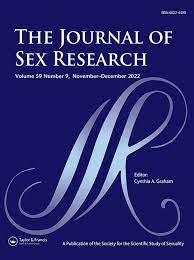DI Trainee’s Dissertation Published
Current Danielsen Institute Trainee, Dr. Libby Ruffing, investigated pornography related distress, relationship satisfaction, and sexual satisfaction in a large sample of cisgender women whose male partners had engaged in solitary use of pornography in recent months. She found higher frequency of partner’s pornography use was associated with pornography-related distress and lower relationship and sexual satisfaction among these women. Negative attitudes toward pornography use and conservative religiosity tended to amplify some of these effects, suggesting these can be important factors to sensitively consider in clinical practice.
Ruffing, E.G., Brody, L.R., & Sandage, S.J. (2022). Distress and satisfaction in women whose male partners use pornography: The roles of attitude, religious commitment, and religious conservatism. Journal of Sex Research.
Qualitative studies suggest that women’s attitudes and religiosity have an important role in their experience of their male partners’ pornography use, but these factors have not been adequately studied. The present study examined the contributions of perceived frequency of male partners’ solitary pornography use (PFREQ), women’s attitudes toward their partners’ pornography use, conservative religiosity, and religious commitment to women’s pornography-related distress, relationship satisfaction, and sexual satisfaction in women who reported they were married to or cohabitating with men who had used pornography in the prior 3 months (median frequency = 1–2 times/week). Participants were online research panel participants (n = 625), age mean = 44[SD = 13], diverse SES, 86% White. Partial correlations and multiple regressions, controlling for demographic variables and COVID-19-related stress, indicated that higher PFREQ and negative attitudes toward pornography were significantly associated with women’s higher pornography-related distress, lower relationship satisfaction, and lower sexual satisfaction. Moderation analyses found that negative attitude amplified the negative association between PFREQ and relationship satisfaction, and conservative religiosity amplified the positive association between PFREQ and pornography-related distress. Neither attitude nor religious factors moderated the negative association between PFREQ and sexual satisfaction. Findings suggest that attitude, religious factors, and PFREQ are each important to consider in research and clinical contexts.
